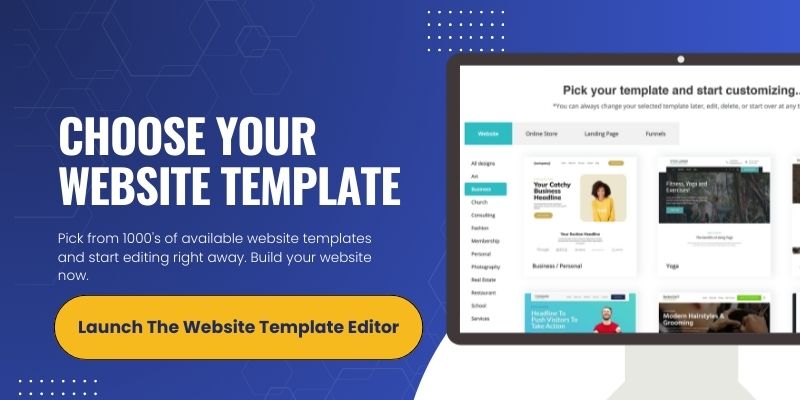Understanding Marketing Funnels
What is a Marketing Funnel?
When I first heard about marketing funnels, it felt like a foreign concept, but now I see them everywhere! Essentially, a marketing funnel is a model that outlines the customer journey from awareness to purchase. Think of it as a path that potential customers follow as they learn about your product. Knowing this helps me see where I can improve my efforts.
The funnel typically has several stages: awareness, interest, decision, and action. Each stage represents a step that moves customers closer to making a purchase. Understanding these stages has been key to optimizing my marketing strategies as I’ve learned to target my efforts more effectively.
By mapping out my customer journey, I’ve been able to communicate more clearly and effectively with my audience, addressing their needs at every stage. It’s a game-changer as it not only increases conversion rates but also builds trust and lasting relationships with my customers.
Why Use Templates?
Time-Saving Benefits
Let’s face it—time is one of the most precious resources we have. When I discovered marketing funnel templates, I couldn’t believe how much time I saved. Templates give you a ready-made structure to start from. Instead of creating everything from scratch, you can focus on tweaking the details that matter the most to your audience.
Using a template allows me to streamline my efforts, so I can spend more time strategizing and less time figuring out layout designs. Plus, having a visual guide keeps me organized, which has been a lifesaver when juggling multiple campaigns at once.
Templates also allow for quick adjustments. If I spot something that isn’t quite right in my sales process, I can easily edit the template instead of rewriting everything. It’s like having a solid foundation that you can build upon—super helpful!
The Different Types of Marketing Funnels
Lead Generation Funnels
Lead generation funnels are all about attracting new leads. At first, I wasn’t sure how to create a system to collect information from potential customers. But once I dove in, I found that these funnels offer valuable tools like lead magnets and landing pages that capture interest effectively.
What I love about lead generation funnels is their potential to grow my email list. By providing something of value, whether it’s a free e-book or a webinar, I can entice visitors to hand over their contact details. It’s like a win-win for everyone involved.
My email list has become a powerful tool that allows me to nurture leads over time. By sending tailored content that resonates with their experiences, I can maintain their interest until they’re ready to make a purchase. This gradual approach has proven successful for me, and I can’t recommend it enough!
Choosing the Right Template for Your Business
Identifying Your Needs
When I set out to find the perfect marketing funnel template, I realized the first step was through self-reflection. What are my specific goals? Is my primary focus on lead generation or conversion? By identifying my needs, I can narrow down the template options that fit best.
Knowing my target audience also played a huge part in choosing the right template. Each funnel template serves a different purpose, and understanding who I’m trying to reach helps determine which one to go for. Do my ideal customers prefer detailed information, or are they looking for something quick and snappy?
Using templates that align with my brand voice and aesthetics is another key factor. I want my marketing materials to feel authentic and true to what I stand for. Templates that reflect my style create a seamless experience for my audience, and that’s critical for conversion.
Where to Find Quality Funnel Templates
Online Resources
I’ve spent countless hours searching for funnel templates, and let me tell you, there are some fantastic resources out there! Websites like HubSpot and Canva offer free and premium templates that you can customize according to your needs. The best part is, they come with user-friendly interfaces that make editing a breeze.
Another hidden gem is template marketplaces like ThemeForest. They have an array of funnel templates catered to various industries, allowing me to find something tailored to my niche. Plus, getting feedback from reviews helps me make more informed decisions.
Don’t forget about forums and online communities! Places like Reddit or specialized marketing groups often share links to valuable templates—sometimes even from fellow marketers who are on the same journey. These communities can be gold mines for finding reliable resources.
How to Customize Your Funnel Templates
Personalizing Your Content
Customization is where the magic happens! Once I found a template that resonated with my goals, personalizing it became my priority. I quickly realized that adding my unique branding elements—like logos, colors, and fonts—really helps my funnel stand out and feel authentic.
Additionally, tweaking the copy in the templates to reflect my brand voice has made a noticeable difference. Using informal language and adding personal anecdotes create a connection with my audience that feels genuine. It’s crucial to speak their language, and customizing the content significantly enhances relatability.
Don’t forget about data! By integrating analytics tools, I can track how well my funnel performs, allowing for further tweaks as needed. With personalization upfront and data backing my decisions, I can effectively optimize my funnels for better results.
Testing and Optimizing Your Funnels
A/B Testing Strategies
Once my funnel is set up, I can’t stress enough how important it is to test and optimize. A/B testing lets me compare variations of my funnels to determine which performs better. This data-driven approach is instrumental in refining my marketing strategy over time.
For example, I often change up the headlines or call-to-action buttons on my funnel. By analyzing the performance, I can see what resonates more with my audience and how to make those adjustments. It provides clarity on what works, saving me time and energy in my marketing efforts.
Don’t get discouraged if the initial results aren’t what you expected. Testing is about experimentation, and it’s all part of the learning process. Each step I take in testing helps me understand my audience better, crafting funnels that truly meet their needs.
FAQ
What is a marketing funnel?
A marketing funnel is a model that represents the customer journey from awareness to purchase. It helps businesses understand and optimize their marketing strategy to better guide prospects through their buying journey.
Why should I use templates for my marketing funnels?
Templates save you time and provide a structured layout to start from. They help streamline your efforts, allowing you to focus on the content that resonates with your audience while providing a visual guide to keep you organized.
What types of marketing funnels should I consider?
Common types include lead generation funnels, sales funnels, and email funnels. Each serves a different purpose, so it’s essential to identify your goals and choose a template accordingly.
Where can I find free marketing funnel templates?
Check out online resources like HubSpot, Canva, or template marketplaces like ThemeForest. Additionally, many marketing communities and forums share valuable links to funnel templates.
How do I customize my funnel templates effectively?
Personalize your content by adding your branding elements, tweaking the copy, and ensuring it reflects your unique voice. Don’t forget to make data-driven adjustments based on analytics to continuously optimize your funnels.

